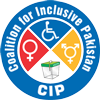The General Elections (GE) 2018 were held under the new Elections Act, 2017, which mandated the Election Commission of Pakistan (ECP) to adopt special measures for mainstreaming marginalized segments of society. The promulgation of the law was a positive development that will increase the political and electoral inclusion of traditionally excluded groups, specifically persons with disabilities (PWDs), transgender people, women, and religious minorities. Despite being progressive legislation, its implementation remained a challenge as there were a significant number of administrative and attitudinal issues hindering the electoral participation of these marginalized groups, mainly in exercising their right to vote. This report is an attempt to make qualitative assessments of the electoral processes through a first-hand experiential study by the trained and non-partisan PWDs, transgender people, and women. The study also includes the information systematically gathered through focus group discussions (FGDs) with religious minorities across Pakistan.
This qualitative observation was carried out under the aegis of Coalition for Inclusive Pakistan (CIP) in collaboration with the Free and Fair Election Network (FAFEN). The findings of this study reveal systematic and attitudinal barriers restricting the electoral participation of PWDs, transgender people, women, and religious minorities. For instance, PWD voters and candidates faced accessibility issues at polling stations due to infrastructural barriers.
Transgender and women voters also reported similar problems, which are otherwise different, requiring legal and procedural reforms for more inclusive elections in Pakistan. Transgender voters were engaged in the electoral process for the first time in Pakistan during GE 2018 after being officially recognized. According to the experiences shared by transgender observers, the attitude of law enforcement agencies and election officials towards transgender voters and candidates was generally positive and respectful. However, public perceptions and their acceptability remained a grey area. Transgender observers reported instances of public scorn and ridicule, which necessitates the ECP to run educational and awareness campaigns to address such unfortunate incidents.
The experiential study also includes specialized observations by trained and accredited women observers. Except for a few harassment incidents, women observers generally reported that election staff complied with the ECP regulations vis-à-vis electoral inclusion of women and positive and respectful behavior by the general public. Concerning the inclusion of religious minorities in the electoral processes, this study highlights social and administrative obstacles hindering their participation. The FGDs conducted with religious minorities reveal that persistent prejudice endemic in society poses threats to their inclusion in the electoral process. Minority communities face administrative barriers such as the complicated voter and National Identity Card (NIC) registration. Lack of resources and transport facilities also remain significant issues resulting in their lower turnout.
To download the complete report, click here



